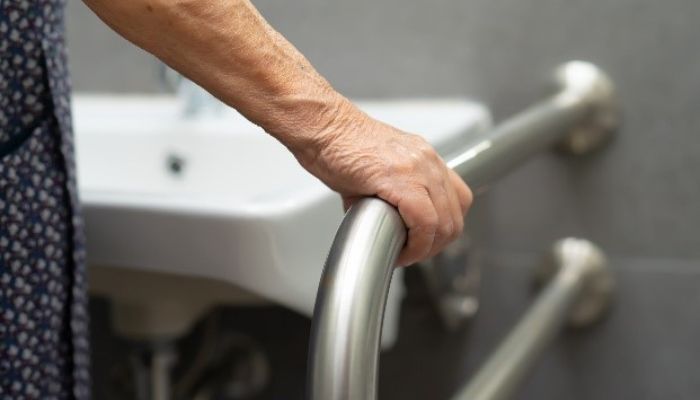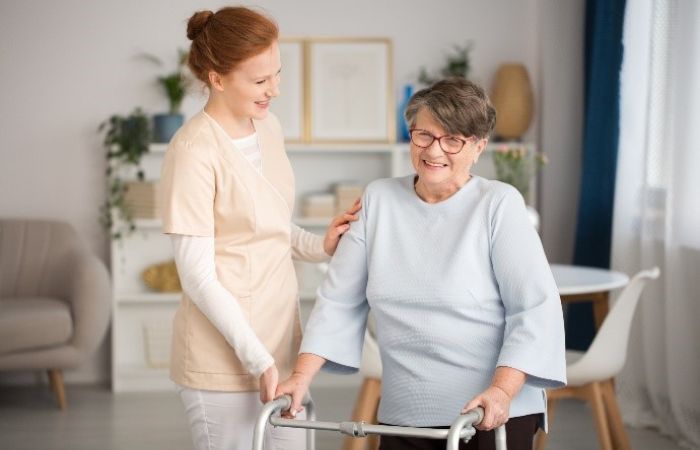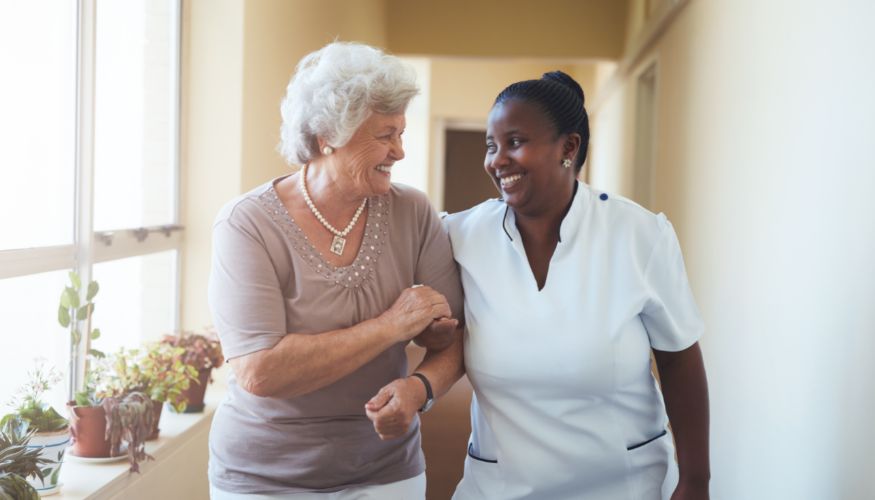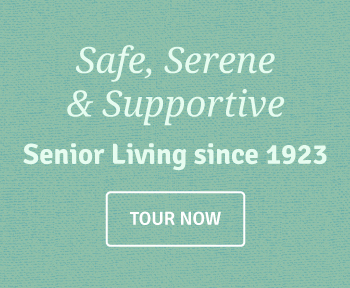Each year, approximately 3 million older people are sent to emergency rooms or hospitalized due to a fall. Whether they live at home or in an assisted living facility, all seniors are vulnerable to falls and the harm that can accompany them. If you or a loved one are worried about falling, you’re in the right place. These fall prevention tips outline eight practical strategies to help seniors avoid falling at home or in assisted living facilities.
Common Causes of Falls
Why are seniors more likely to fall compared to younger adults? Here are some of the most common causes of fall-related accidents:
- Diminished eyesight, hearing, and reflexes
- Health conditions that affect balance (diabetes, heart disease, thyroid disease, etc.)
- Cognitive impairments and dementia
- Loss of muscle mass (sarcopenia) that affects balance and stability
- Medications that cause dizziness or loss of balance (including antidepressants, anticonvulsants, blood pressure medications, and sleeping pills)
The good news is that, even if you or a loved one struggle with any of these issues, you can also take steps to prevent falls and stay safe.
8 Fall Prevention Tips
Below are eight practical strategies seniors can use to avoid falls and improve their quality of life:
1. Improve Home Safety

The first fall prevention tip you want to address is ensuring your living area is free from fall hazards. For example, clear out clutter to reduce the risk of tripping and falling. You may also want to tape down or eliminate rugs to avoid potential slipping hazards. Installing grab bars in the bathroom near the bathtub and toilet is also helpful. Luckily these precautions are already in place if you are in an assisted living facility like Plattduetsche Home Society.
2. Exercise Regularly
Regular exercise helps to slow the progression of muscle loss and improves your balance. No matter how old you are, you can still engage in strength training and balancing exercises. Work with a personal trainer or physical therapist to learn which types are best for you and how to perform them safely and correctly.
3. Get Regular Hearing and Vision Checks
Even small hearing and vision impairments can increase your risk of tripping, slipping, and falling. Schedule regular check-ups with your physician to catch and correct impairments early.
4. Review Medications and Side Effects
If you suspect one (or more) of your medications is causing dizziness or balance issues, talk to your physician or pharmacist immediately. They can review your current medication regimen and tell you which drugs contribute to your symptoms. They may also be able to recommend a better alternative.
5. Stay Indoors During Bad Weather
Venturing outside during rainy or snowy weather increases your risk of slipping and falling — even if you use a cane or walker. If possible, stay indoors during bad weather. Take advantage of available services like grocery and prescription deliveries.
6. Use Assistive Devices
Tools like canes, walkers, and rollators can help you maintain your balance while walking indoors and outdoors. However, you must consult a physician to ensure your devices are the right size (otherwise, you may struggle to use them correctly and safely). You will also want to ensure that you are given instructions by your doctor or physical therapist on how to use them correctly.

7. Choose the Right Footwear
Stick to shoes with rubber soles, low heels, and adequate arch support. They will stabilize you and reduce your chances of falling.
8. Ask for Help
It’s okay to ask for help if you’re worried about falling. Ask a family member or friend to come by the house and help you make some adjustments to make things easier and safer. If you live in an assisted living facility, you can also ask the staff for help with activities like dressing, getting out of bed, or bathing.
Implement These Fall Prevention Tips Today
Falls, even seemingly minor ones, can lead to severe injuries. Use this guide to minimize your fall risk and stay safe and healthy.
If you or a loved one are struggling to avoid falls while living alone, consider transitioning to an assisted living facility. At Plattduetsche Home Society, you’ll receive help with various activities of daily living, including hygiene, bathing, dressing, walking, and getting in and out of bed.
Contact us today to learn more about our services.






